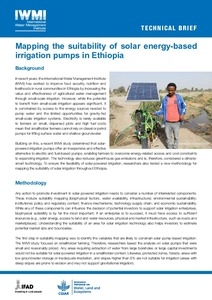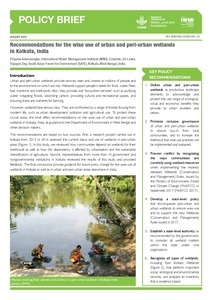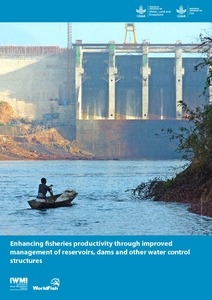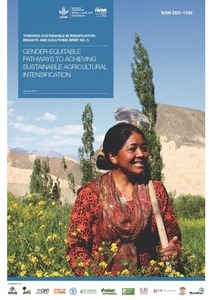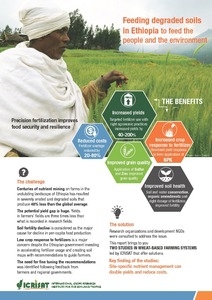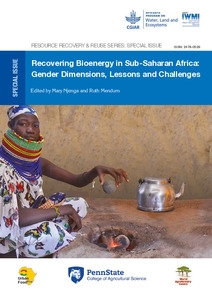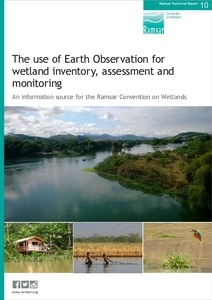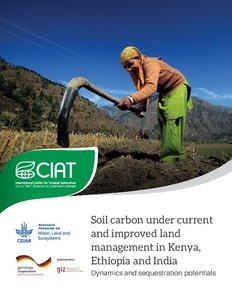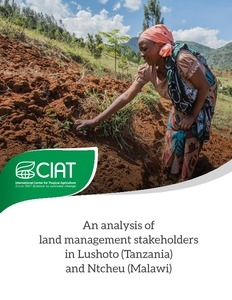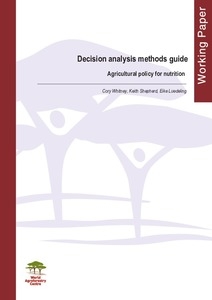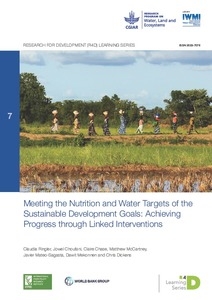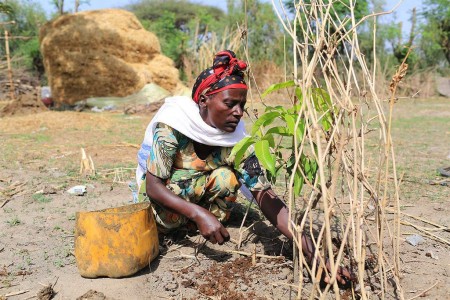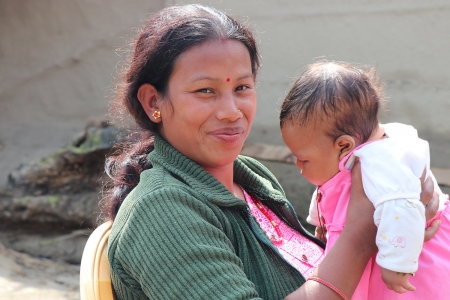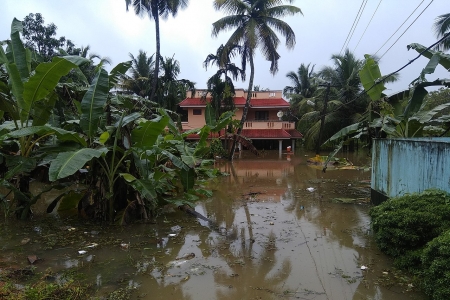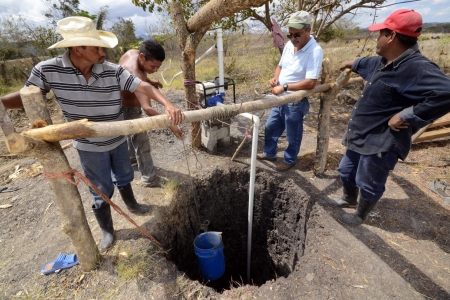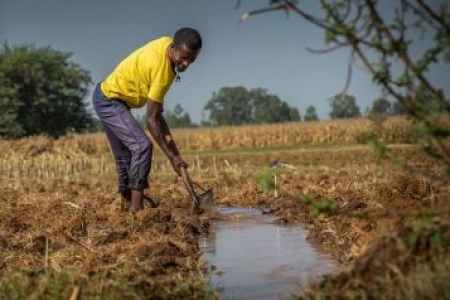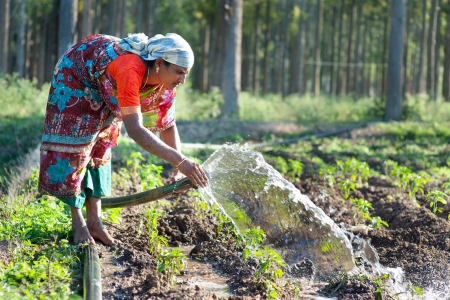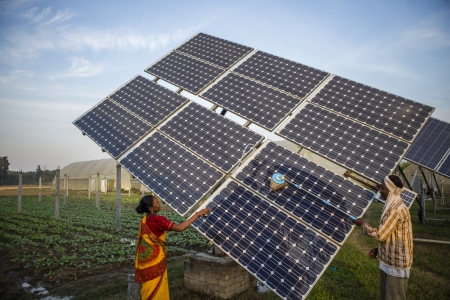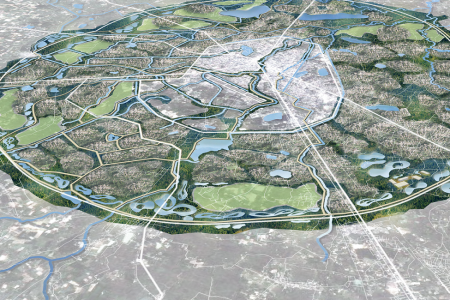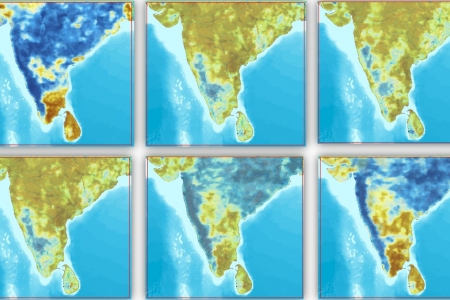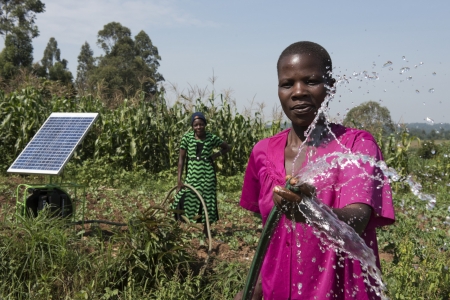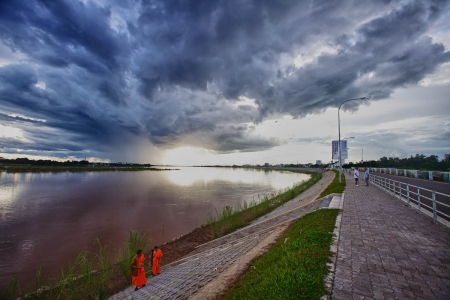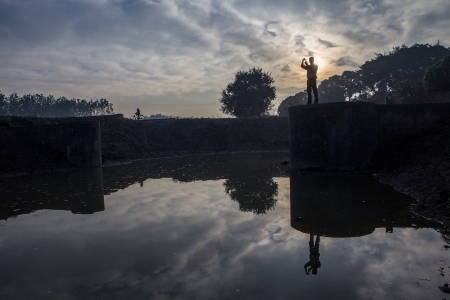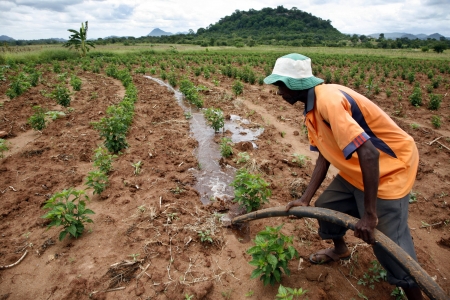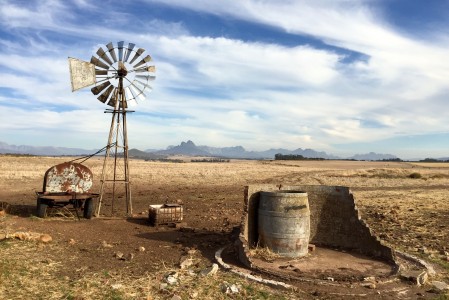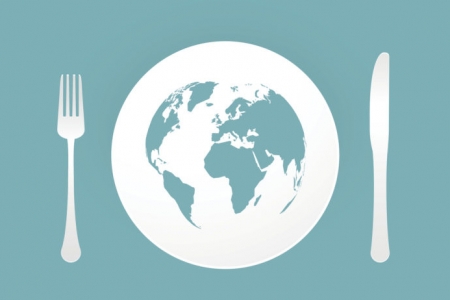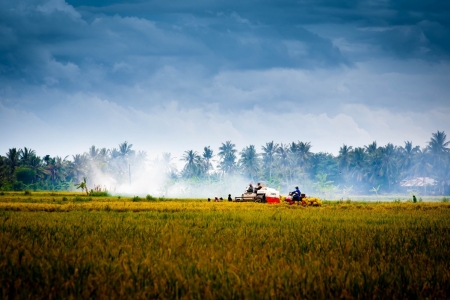The WLE 2018 Annual Report > Equality of opportunity

New wealth-from-waste business models offer opportunities for entrepreneurial youth
As agriculture changes, developing countries are grappling with how to provide meaningful employment and entrepreneurial opportunities to youth and others. More than 85% of the world’s 1.2 billion youth live in developing countries, and the once dominant agricultural sector is shrinking. This results in a lack of opportunities for youth, which can in turn lead to migration and political insecurity.
Now, entrepreneurship opportunities are arising from an unexpected source: Waste. Business models for turning waste into wealth are being adopted into curricula in 19 universities in Asia, Europe and Africa.
“The business of safe recovery of water, nutrients and energy from domestic and agro-industrial waste offers significant opportunities to generate economic and social benefits to women and unemployed youth, especially in developing countries,” said Miriam Otoo, research group leader for resource recovery and reuse at the International Water Management Institute (IWMI).
“These entrepreneurs, however, face high market entry barriers due to a lack of social networks, specialist skills and capital. It is therefore important to identify appropriate business training for youth or women entrepreneurs, tailored to their specific needs and capacity gaps under each unique geographical context.”
Population growth and urbanization are creating waste crises. Especially in developing countries, waste continues to pollute, affecting drinking water, dangerously overfilling landfills or septic tanks, or dirtying public spaces. Often the waste is burned, choking up local air and releasing carbon. Growing urban centers are keenly looking for waste management solutions.
At the same time, organic waste is rich in nutrients, water and energy that can be recovered to grow food and power economies. For savvy entrepreneurs, waste is packed with potential wealth, offering opportunities particularly for women.
Scientists working with IWMI and the CGIAR Research Program on Water, Land and Ecosystems (WLE) have released a major compendium of wealth-from-waste business models, all based on real-world examples. They include innovative models for converting human waste into safe fertilizer, food waste into biogas, and wastewater into irrigation sources. The models have the potential to create new forms of business and are being further developed in Ghana and Sri Lanka.
Now, WLE and IWMI aim to bring these business models into school curricula. WLE is engaging with 19 universities to adapt this work into syllabi, giving young professionals opportunities to learn new marketable skills. An intensive training program was already held for 25 university teachers to deliver material to students. These ‘train-the-trainer’ programs help tailor material for engineering, health, economics or business courses, and they support peer training. A free online curriculum will be uploaded to sswm.info.
With these recent developments, resource recovery and reuse business models look set to bring opportunities for youth, a more circular economy and a cleaner environment.
Agricultural challengesare meetingtheir matchWLE 2018-19 Research Highlights
Finding the right solutions puts sustainable agriculture within reach
Sustainable agriculture faces a constellation of ever-shifting challenges. Our world’s population grows toward ten billion, but there is now indisputable evidence of multiple serious social and environmental impacts caused by current agricultural and food systems. We are fast approaching our limits.
Play the Sustainable Agriculture Match GameClick two cards. If the pictures match, the WLE solution will pop up! If not, try again with two more cards
Planetary boundaries
Food systems are a major driver of the unsustainable use of the planet’s increasingly fragile ecosystems. Water, land, forests and the biodiversity are precious, yet finite, natural resources. Current trends show that we are pushing the limits of what Earth can handle. How can we transform agriculture so that it's no longer part of this problem, but part of the solution?
Ann Tutwiler (CGIAR Research Program on Water, Land and Ecosystems (WLE))Board Chair
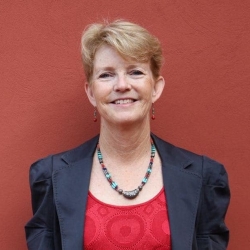
WLE is establishing a commission to convene global experts on sustainable intensification of agriculture. These experts will bring together years of research by WLE, our CGIAR partners and other science institutions to synthesize the best policies, economic incentives, tools, technologies and practices as well as lay out a roadmap for a sustainable and equitable food future.
Step Aston (One Acre Fund)Director - Agriculture Research
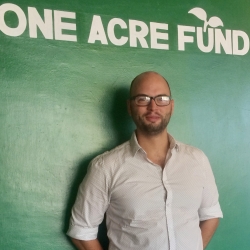
Access to reliable, large-scale, low-cost soil data is an important part of our efforts to develop more locally tailored soil fertility management recommendations and monitor the long-term impacts of our programs on soil health. To date, our soil lab has processed 50,000 soil samples, deriving insights to inform program strategy and decision-making in six countries. This effort would have been cost-prohibitive were it not for the technological breakthroughs and support delivered by the soil-plant diagnostic laboratory.
Food availability
Population growth, demographic shifts, dietary change, climate change and environmental decline challenge everything we know about how to grow and share food. Yet, food production must increase – some estimates say by 50 percent globally, and by almost 100 percent in Africa and Southeast Asia by 2050. But it’s not only about increased production. Better, healthier and more nutritious food is needed too.
Diego Senoner (Indo-German Energy Program)Technical expert
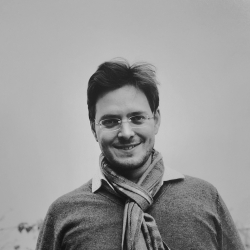
A well-designed KUSUM (Indian solar pump and grid-connected power plant scheme) policy for solar-powered irrigation is important for India to secure sustainable development of agriculture, maintain food security and safeguard groundwater during times of changing climatic conditions.
Marcela Quintero (International Center for Tropical Agriculture (CIAT))Agroecosystems and sustainable landscapes research area director
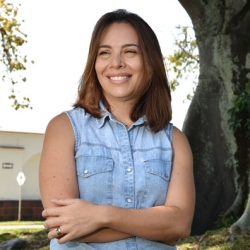
This data platform for improving water management demonstrates the potential that alliances between research centers and development agencies have to generate products that provide concrete solutions to real problems in agriculture. Likewise, these partnerships allow technical and scientific products to reach end users faster.
Equality of opportunity
In this era of planetary degradation, the world’s poorest and most marginalized often bear the brunt of the burden, losing livelihoods and opportunities. This can drive conflict and migration. With men increasingly leaving rural areas, women are playing a greater role in agriculture, but are still often marginalized and lack access to decision making and resources. At the same time, the sector offers fewer viable jobs to youth. Solutions are only sustainable if they are also equitable.
Abdullaeva Uguloi (Water user association of Obchakoron District, Halivad Jamoat, Tatjikistan)Head of WUA
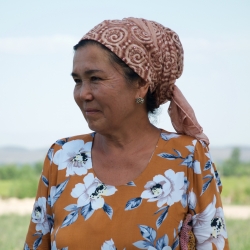
All water user associations should be headed by women. There is so much work, especially at the beginning, but you have to balance so many tasks, and you cannot give up. Women are more likely to overcome barriers. You have to be happy to always be working. Women are much better at this than men.
Miriam Otoo (International Water Management Institute (IWMI))Research group leader for resource recovery and reuse
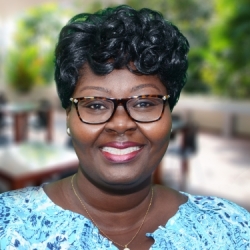
The business of safe recovery of water, nutrients and energy from domestic and agro-industrial waste offers significant opportunities to generate economic and social benefits to women and unemployed youth, especially in developing countries. These entrepreneurs, however, face high market entry barriers due to a lack of social networks, specialist skills and capital. It is therefore important to identify appropriate business training for youth or women entrepreneurs, tailored to their specific needs and capacity gaps under each unique geographical context.
2018 Publications highlights
WLE in the news
Thrive Blog Highlights
WLE is grateful for the support of CGIAR Trust Fund Contributors, including direct support from
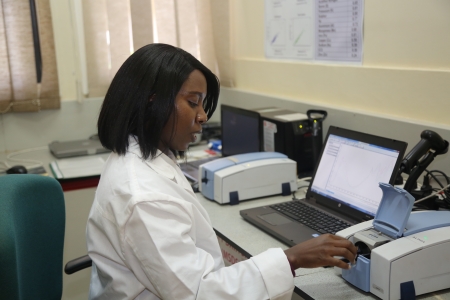
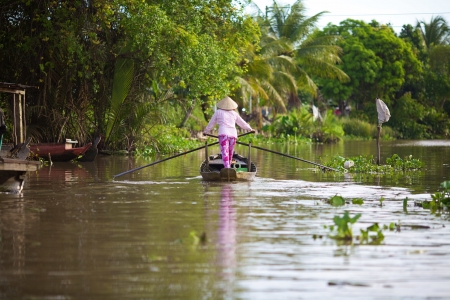
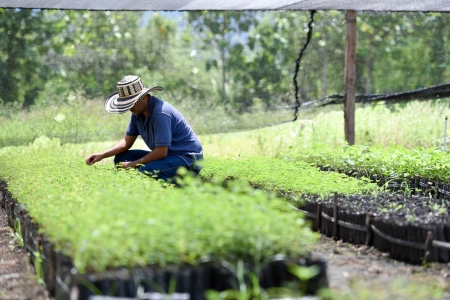
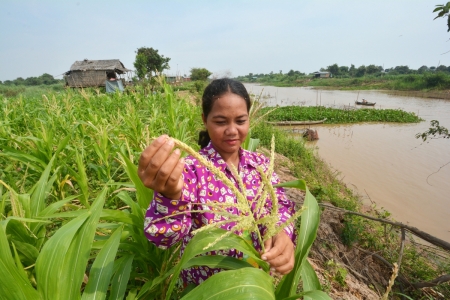
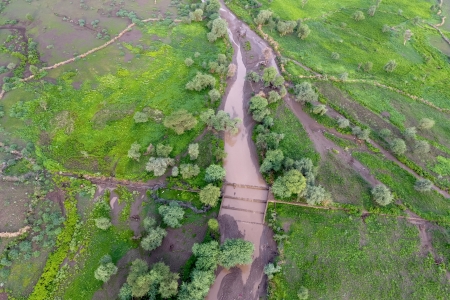
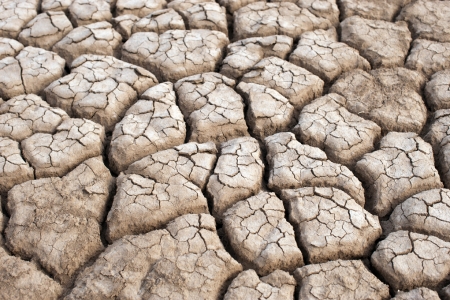
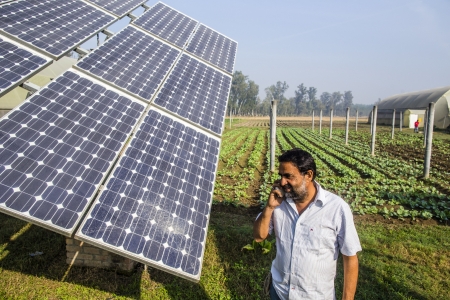
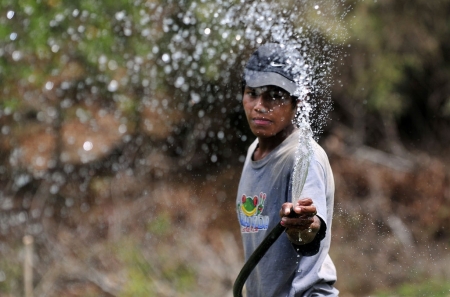
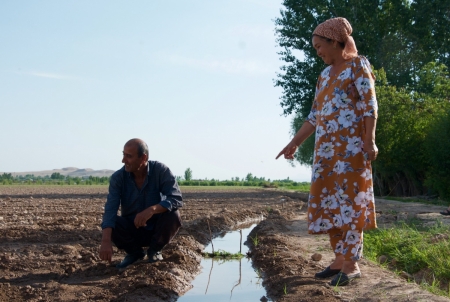
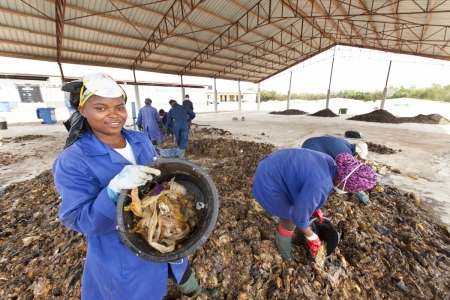
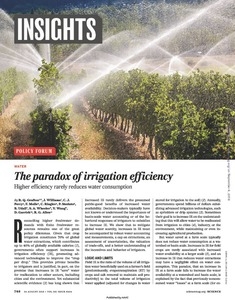
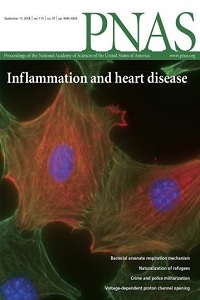
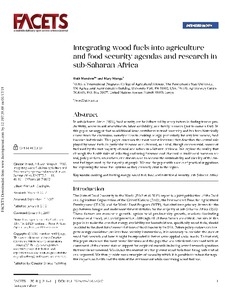
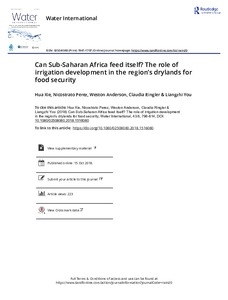
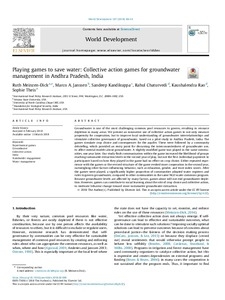
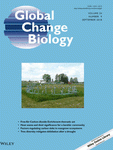

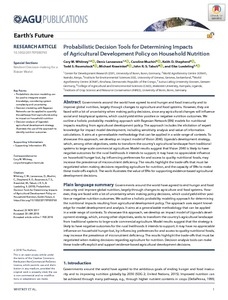
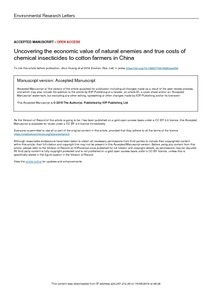
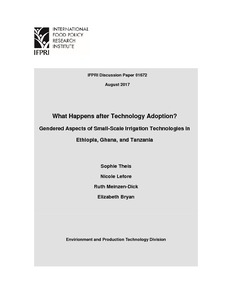
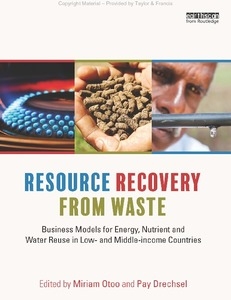
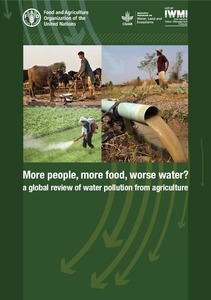
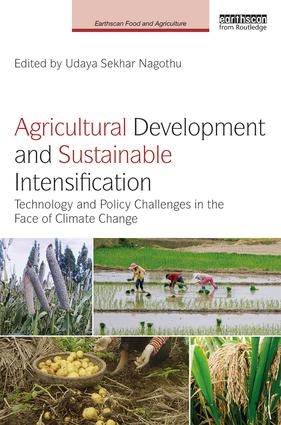
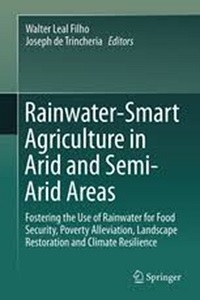
.pdf_/index.jpg?itok=1PqCyZYF)
